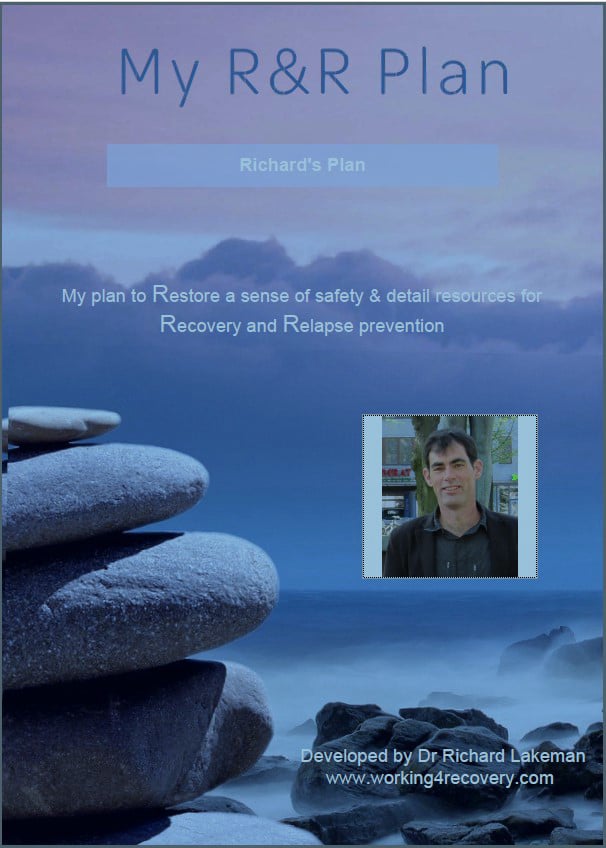My R & R Plan
My plan to Restore a sense of safety & detail resources for Recovery and Relapse prevention
The R&R plan represents a systematic, comprehensive, individualised and collaborative approach to planning for mental health recovery. Specifically the R&R plan addresses:
• Restoring and maintaining a sense of safety;
• Identifying and responding proactively to signs and symptoms suggestive of relapse (sometimes called a relapse signature);
• Identifying and scheduling activities which are necessary to maintain optimal mental health and wellbeing;
• Focusing on positive mental health such as evidence-based practices to enable thriving and enhancing resilience;
• Enabling communication between individuals and their supporters / allies about the best way to support recovery and;
• Enabling useful conversations between health professionals, individuals and their supporters about needs and treatment.
All or some of the R&R plan may be completed by you and should be written in "I" language. This was designed by Dr Richard Lakeman, an academic and psychotherapist for use by people who may be engaged in therapy or interested in improving their wellbeing.
You may need to download and open this document in Adobe Acrobat and save the file when you fill it in.
The R&R plan draws on a range of evidence-based practices and principles to restore and maintain a sense of safety and plan for a thriving future. Some or all of these are routinely introduced to individuals and families, students and groups whom Dr Richard Lakeman works with.
Download the R & R Plan
